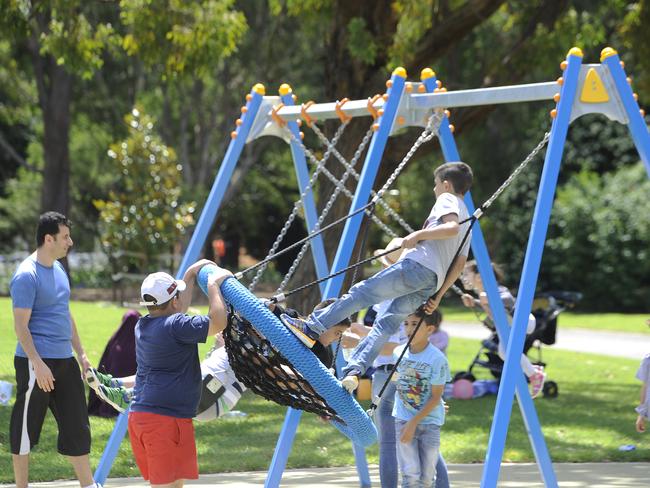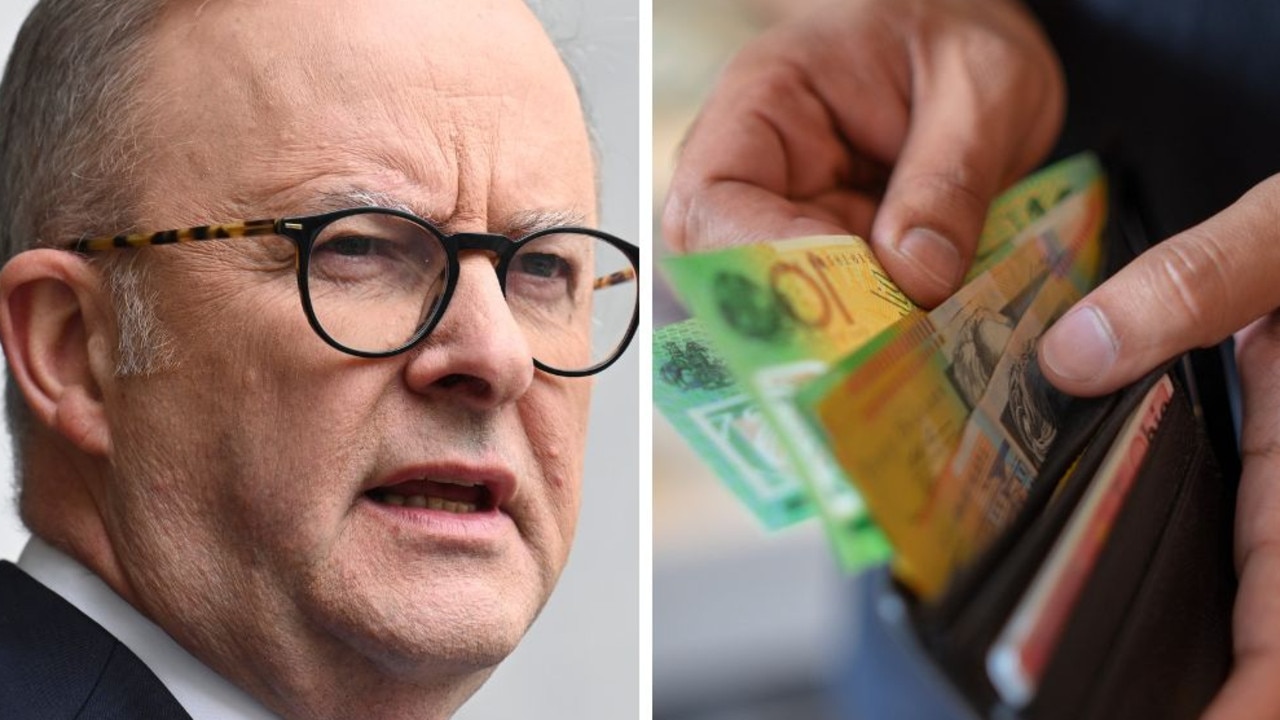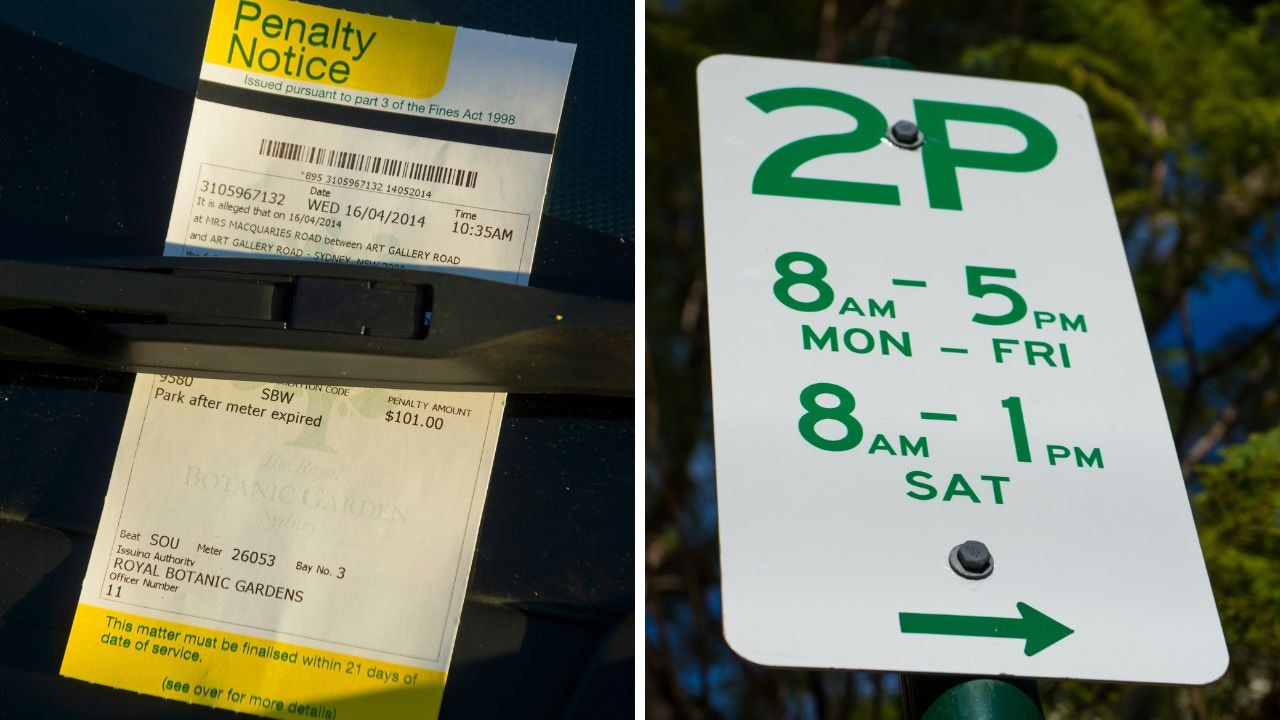Federal Budget 2015: What it means for you
WITH sweeping changes for young people, parents, businesses, consumers and job seekers, here’s how the Budget will affect your hip pocket.
Money
Don't miss out on the headlines from Money. Followed categories will be added to My News.
THE 2015-16 Federal Budget has its eye on turbocharging the economy and getting more Australians into work, with generous stimulus for small business and childcare.
With sweeping changes to young people, parents, businesses, consumers and job seekers, here’s how the Budget will affect your hip pocket.
IF YOU’RE LOOKING FOR A JOB …
If you’re fresh out of school or university and hope to join the workforce, new government initiatives are designed to make you a more attractive employee. To encourage businesses to employ young people, employers can access up to $6500 in wage subsidies over 12 months. And job seekers can receive a $10-a-week boost to their unemployment benefits if they complete volunteer work experience of up to 25 hours per week. Last year’s plan to make people under 30 wait six months to receive the dole has been scrapped, replaced with a four-week waiting period for those under 25.
IF YOU RUN A SMALL BUSINESS …
Small business is the big winner of Joe Hockey’s second budget. The government has slashed red tape while offering generous tax concessions to encourage small business owners to create jobs. According to the government, 96 per cent of Australian businesses will be eligible for tax relief. The big-ticket item for all small businesses – defined as having a turnover of less than $2 million – is a tax cut of 1.5 per cent. For example, a company with an annual turnover of $1.3 million and a taxable income of $200,000 will be $3000 better off. If you’re starting a small business, life will be easier. Business purchases costing less than $20,000 will be immediately tax deductible. This can apply to as many items as you like – ovens, coffee machines, lawnmowers – while any assets over $20,000 can be pooled together and depreciated at the same rate.

IF YOU’RE A SOLE TRADER ...
For the roughly 1.7 million tradies, sole operators, partnerships and other unincorporated small businesses who don’t pay the 30 per cent company tax rate, the government is offering a 5 per cent tax discount of up to $1000.
IF YOU SEND THE KIDS TO CHILDCARE …
Families earning between $65,000 and $185,000 will be about $30 a week better off under sweeping changes to childcare. The $3.5 billion overhaul of the childcare system means centres will receive direct government payments, which will reduce parents’ upfront costs from July 2017. There will be a new activity test — to establish whether parents are in work, training or study — for families to access up to 100 hours of subsidised childcare a fortnight. However, the childcare package is linked to cuts to family payments left over from last year’s Budget.
if YOU’RE A STAY-AT-HOME PARENT …
Families with one stay-at-home are among the losers in this Budget, as the government tries to encourage parents to re-enter the workforce. Families with one stay-at-home parent and a household income of $65,000 or more, will lose all childcare subsidies. Under the new proposals, both parents must do at least eight hours a fortnight of work, training or study to qualify for any childcare payment subsidies. This comes into effect on July 1, 2017. Households with a stay-at-home parent and earning less than $65,000 will still receive 12 hours of subsidised childcare.
IF YOU HAVE KIDS AND ARE A SHIFT WORKER …
Shift workers such as nurses and police officers may be able access subsidised nannies with the establishment of a two-year pilot that will cost $246 million.
IF YOU’RE PLANNING TO HAVE A BABY …
The days of “double dipping” into parental leave schemes are over, with parents now unable to claim both an employer-funded paid parental leave scheme and the taxpayer-funded 18-week minimum wage scheme. Parents who miss out on the taxpayer-funded scheme will be $11,538 worse off. Almost 80,000 new mothers will lose some or all of their parental leave payments. It’s a remarkable change of policy from Prime Minister Tony Abbott, who went to both the 2010 and 2013 elections promising that new parents would be paid their full salary for six months, capped at an annual income of $150,000. The generous paid parental leave scheme has since been dumped.
IF YOU HAVE A LARGE FAMILY …
You’ll receive smaller family support payments. Last year’s Budget reduced the Family Tax Benefit Part A Large Family Supplement for people with fewer than four kids. This year, they’re getting rid of it completely. This is expected to save the government $177.3 million over four years.

IF YOU’RE A YOUNG PERSON …
More young people, especially those from rural and regional areas, will be able to access Youth Allowance payments with the government vowing to simplify means testing from January. Some recipients of Youth Allowance may also end up with more money in their pockets. The changes are slated to cost the government $262.7 million over five years.
IF YOU’RE CONCERNED ABOUT NATIONAL SECURITY …
The government has beefed up its spending on national security by $1.2 billion, building on the $1 billion already announced. This will include $750 million on expanding Australia’s military operations in Afghanistan, Iraq and the Middle East. There will also be $296 million to strengthen the capabilities of our intelligence agencies, including updating information technology systems, and $22 million to combat terrorist propaganda and counter violent extremism, particularly via social media. People who work for the Australian Defence Force will receive a 2 per cent pay rise.
IF YOU’RE A STUDENT …
Students who’ve completed their training and then ducked off overseas, you’re on notice. These people would ordinarily avoid paying back their HECS debt, but the government has resolved to ensure this money is recovered, which is expected to claw back $14 million a year in savings. The government is ploughing ahead with plans to deregulate the higher education sector, with the Budget forecasting spending on the industry to decrease 0.5 per cent in real terms from 2014-15 to 2015-16 and by 7.3 per cent in real terms from 2015-16 to 2018-19. This means higher course fees for students.
IF YOU WORK IN THE PUBLIC SERVICE …
Jobs are likely to go in the public service, as the government pledges to save $450 million over next five years. The federal health and education departments will be targeted, as the government pledges smaller government in 2015-16.
IF YOU’RE UNWELL …
The government is pushing ahead with $400 million in funding over the next four years to establish the Medical Research Future Fund, which is designed to find cures for diseases. Treasurer Joe Hockey said last year that the fund could lead to cures for dementia, Alzheimer’s, heart disease or cancer — but the scheme was put on the backburner when the government failed to pass last year’s maligned GP co-payment. The government has also pledged $600 million for cancer drugs and screening, $300 million in funding for mental health groups and $200 million for dental healthcare.

IF YOU BUY MEDICINE …
Patients should see a significant drop in price of many common medicines, while some lifesaving treatments will become more affordable. The government will pay out less for generic medicines through the Pharmaceutical Benefits Scheme, with the price of some common drugs to be cut in half. Other over-the-counter medicines including paracetamol, aspirin and antacids will be removed from the PBS entirely to make way for more expensive items. The expected $3 billion in savings will go towards funding new, expensive treatments for melanoma, breast cancer and blindness. Cancer is a big focus, with $600 million going towards new medicines and screening tests.
IF YOU DOWNLOAD TV OR MOVIES ONLINE …
Expect to pay 10 per cent more for streaming service Netflix and other TV, movie, e-book, game and song downloads as the government extends the goods and services tax to “intangible” online products.
IF YOU DRIVE A CAR FOR WORK …
The government has halved the number of ways that Australians can claim work-related motor vehicle expenses as a tax deduction. The tax office currently allows taxpayers to claim 12 per cent of a car’s original value or one third of vehicle expenses, but these rules will be discontinued. How many cents per litre motorists can claim, which is likely to make those who drive smaller vehicles better off, and those with bigger vehicles worse off.
IF YOU’RE OVER 50 …
The government wants you to stay at work, not on the pension. To encourage employers to take on people who are over 50 and who have been unemployed for more than six months, businesses can access up to $10,000 a year in wage subsidies.
IF YOU ARE TRYING TO BUY A HOUSE ...
You are on your own. The government has not included measures to make housing more affordable for first home buyers. However, foreign investors will face stricter penalties if they break the rules when investing in residential real estate and the Australian Taxation Office will be given responsibility for enforcing this.

IF YOU DON’T VACCINATE YOUR CHILDREN …
Parents who don’t vaccinate their kids will receive no government subsidies or payments, except on medical grounds. And $26 million has been set aside for incentive payments for doctors to vaccinate children.
IF YOU’RE A BACKPACKER …
You can kiss your tax-free threshold goodbye. People on working holiday visas will have to pay tax from the very first dollar and will no longer be entitled to the $18,000 tax-free threshold. It’s expected to generate $540 million in savings.
IF YOU CARE ABOUT THE ENVIRONMENT …
The government has pledged $2.55 billion for the Emissions Reduction Fund, its “direct action” policy designed to reduced carbon emissions. There will also be $100 million to protect the Great Barrier Reef.
IF YOU CARE ABOUT A BUDGET SURPLUS …
The Budget deficit for 2015-16 will be $35.1 billion, despite a $52 million writedown in tax receipts and a halving of the iron ore price since the 2014 Budget. This is an improvement on the $40 billion-plus predicted. The deficits are projected to shrink over the next four years to $6.9 billion by 2018-19.
IF YOU’RE ON A PENSION …
The government’s proposed changes to pensions are designed to help 170,000 low-to-middle income pensioners, who will be $15 a week better off, according to the government. The assets threshold for the full pension, which excludes the family home, has been raised from $202,000 to $250,000 for singles, and from $286,000 to $375,000 for couples. But the limit at which someone can receive the part-pension has been dramatically reduced from $1.15 million for couples, to $823,000. This means 91,000 people will no longer receive a pension payment while another 235,000 people will receive less. The government has ditched last year’s Budget plans to change how pensions will rise over time. Pensions will now increase twice a year, every year, by indexing the average male wage, which is purported to be the “highest available indexation rate”.
Even if you are no longer eligible for pension payments because of these changed thresholds, you’ll still be able to get the Commonwealth Seniors Health Card or Health Care Card.
— Reporting by James Law, Frank Chung, Charis Chang and Wenlei Ma
Originally published as Federal Budget 2015: What it means for you


